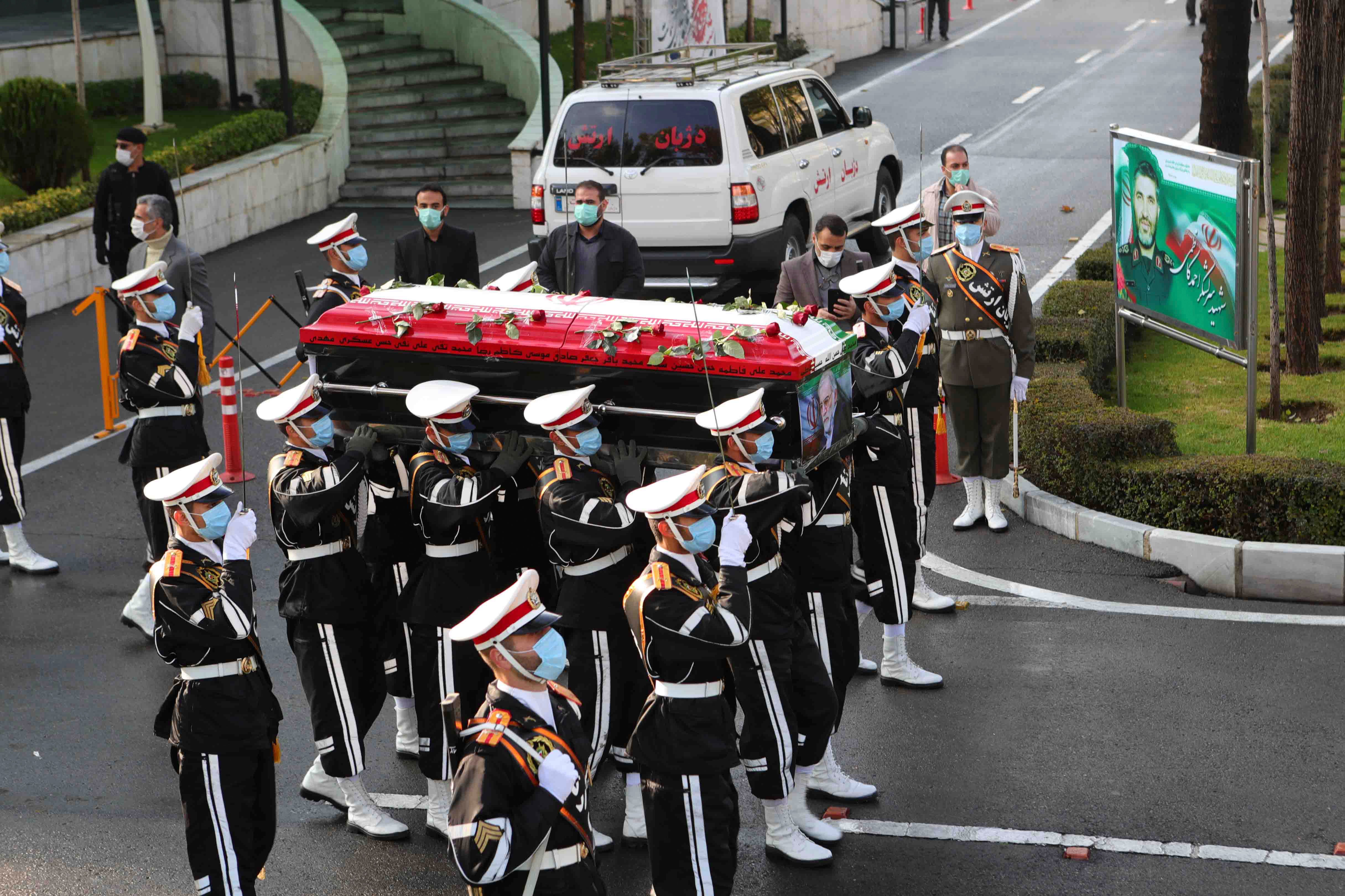Iran says weapon used to kill top nuclear scientist was ‘made in Israel’
The UAE has issued a statement calling it a ‘heinous assassination’

Iran has claimed that the weapon used to kill their top nuclear scientist, Mohsen Fakhrizadeh, who founded the country’s military nuclear programme two decades ago, was made in Israel.
Ali Shamkhani, a member of Iran’s national security council, said the attack was “carried out using electronic devices”. He was speaking at a funeral service for Fakhrizadeh that took place outdoors at Iran's defence ministry in Tehran on Monday.
“No individual was present at the site” of the killing, said Mr Shamkhani, according to Iran’s state-controlled English-language Press TV. He also blamed an Iranian exile group, Mujahedeen-e-Khalq, of “having a role” in the incident but did not elaborate on the claim.
Iranian media reported that a weapon was recovered from the site of the attack with “the logo and specifications of the Israeli military industry”.
Another outlet, the Arabic-language channel Al-Alam, said the weapons used were “controlled by satellite”. It also did not provide evidence to back the claims.
Israel has so far not commented on the attack.
The funeral was attended by top-ranking officials including the commander-in-chief of the Revolutionary Guards, General Hossein Salami; the head of Iran’s civilian nuclear programme, Ali Akbar Sahei; and the intelligence minister, Mahmoud Alavi.
Iran’s supreme leader, Ayatollah Ali Khamenei, has already promised “revenge” for Fakhrizadeh’s killing.
Fakhrizadeh, often described as the father of Iran’s nuclear programme, was assassinated on the outskirts of Tehran on 27 November.
Iran’s critics have accused the country of using its civilian nuclear programme as a front for a military operation developing nuclear weapons, even as the country continues to assert that its programme is peaceful.
After kissing Fakhrizadeh's casket, Iran’s defence minister, General Amir Hatami, said in a speech that the assassination would make Iranians “more united, more determined”.
“For the continuation of your path, we will continue with more speed and more power,” said Gen Hatami, while he criticised countries that have not condemned the killing. “This will catch up with you some day.”
The United Arab Emirates issued a statement on Monday condemning the “heinous assassination”. The UAE and Israel are trying to normalise their relations, a process that recently included the resumption of passenger air services between the two nations.
Subscribe to Independent Premium to bookmark this article
Want to bookmark your favourite articles and stories to read or reference later? Start your Independent Premium subscription today.

Join our commenting forum
Join thought-provoking conversations, follow other Independent readers and see their replies